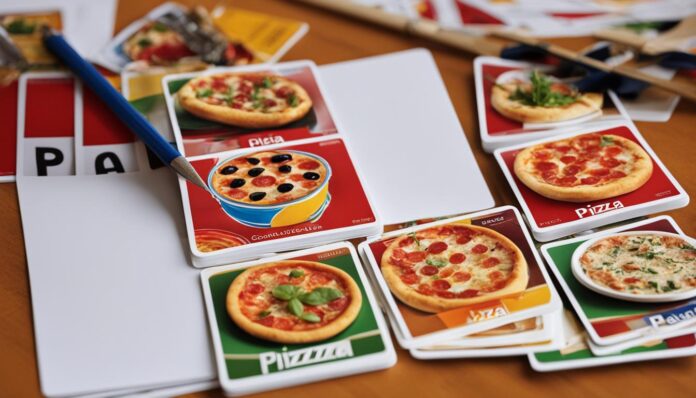Are you planning a trip to Italy soon? Want to impress the locals with your Italian language skills? Learning Italian can seem daunting, but fear not. In this guide, we will provide you with the essential tips and tricks to speak basic Italian like a local. From Italian phrases and expressions to essential vocabulary, you will be equipped with the tools you need to charm your way through Italy effortlessly.
Whether you are a beginner or looking to brush up on your skills, this guide is perfect for those seeking to immerse themselves in Italian culture and language. So, are you ready to learn how to speak basic Italian like a local? Let’s get started!
Italian Pronunciation Tips
When learning Italian, mastering pronunciation is essential to sound like a local. The sounds of Italian can be tricky, but with a little practice, you can train your ears and your mouth to produce each sound correctly.
One of the most crucial elements of pronunciation is intonation. Italian is a language with a pitch accent, which means that the stress of a word can change its meaning. To master Italian intonation, practice stressing the right syllables and using rising or falling pitch when speaking.
Another important aspect of Italian pronunciation is accentuation. In Italian, each word follows specific rules for emphasizing certain syllables. Study up on these rules and practice saying words out loud to improve your accentuation.
Finally, don’t forget to focus on individual vowel and consonant sounds. Italian has several sounds that don’t exist in English and can be challenging to master, such as the rolled R and the open E and O sounds. Listening to Italian speakers and practicing pronouncing these sounds is key to authentic Italian pronunciation.
Italian Pronunciation Resources
For more support in mastering Italian pronunciation, check out these resources:
| Resource | Description |
|---|---|
| Forvo | A website with audio pronunciations of Italian words from native Italian speakers. |
| Pronunciation App | A mobile app that provides interactive exercises to improve Italian pronunciation. |
| Italian Pronunciation YouTube Channels | Channels like ‘Learn Italian with Lucrezia’ or ‘Italy Made Easy’ offer valuable tips and practice exercises for Italian pronunciation. |
By following these Italian pronunciation tips and practicing consistently, you’ll be well on your way to sounding like a local.
Building Essential Italian Vocabulary
One of the keys to speaking Italian naturally is having a foundation of Essential Italian vocabulary that locals use in everyday conversations. By expanding your vocabulary, you will be able to communicate more effectively with native Italian speakers and convey your thoughts and ideas accurately.
To get you started on your language learning journey, we’ve compiled a list of essential Italian words and phrases for everyday use:
| Italian | English |
|---|---|
| Ciao | Hello/Goodbye |
| Grazie | Thank you |
| Prego | You’re welcome |
| Per favore | Please |
| Mi scusi | Excuse me/sorry |
| Buon giorno | Good morning/afternoon |
| Buona sera | Good evening |
| Buona notte | Good night |
These are just a few examples of Essential Italian vocabulary that you can use in your daily conversations. Try using them in context and practice as much as you can to build your confidence and fluency.
Mastering Italian Grammar Basics
Improving your conversational skills in Italian means having a solid understanding of the grammar basics, from sentence structure to verb conjugation.
Let’s take a look at some important grammar rules to help you speak Italian naturally:
| Grammar Rule | Explanation |
|---|---|
| Sentence Structure | Italian sentences follow a Subject-Verb-Object structure, where the subject comes first, followed by the verb and then the object. |
| Verb Conjugation | Italian verbs change according to the tense, mood, and person. Make sure to practice verb conjugation to speak Italian accurately. |
| Noun Agreement | In Italian, the gender and number of nouns must agree with their articles and adjectives. Learn the gender of Italian nouns to avoid common errors when speaking. |
Practice these grammar rules consistently to improve your conversational Italian skills. Many online resources offer useful exercises to improve your grammar skills, such as Duolingo and Babbel.
Italian Slang and Colloquialisms
Learning Italian colloquialisms and slang is key to sounding like a local. Italians use unique phrases and idioms that may not make sense in a standard Italian language course. Incorporating these expressions in your everyday conversation will help you connect with Italians on a deeper level. Here are some common Italian slang and colloquialisms to add to your vocabulary:
| Italian Slang and Colloquialisms | English Translation |
|---|---|
| Boh | I don’t know |
| Figurati | Don’t mention it/You’re welcome |
| Che palle | How boring |
| Magari | I wish/Maybe |
| Che schifo | How gross |
Don’t be afraid to use Italian slang and colloquialisms when appropriate, but be mindful of the context and audience. Incorporating these expressions in your vocabulary will help you speak Italian naturally and sound like a local.
Immersion in Italian Culture and Language
To truly speak like a local, immersing yourself in Italian culture and language is key. This goes beyond just studying grammar and vocabulary. Immerse yourself in Italian culture by attending local events and festivals. Try traditional Italian dishes, and maybe even take some cooking classes to learn how to make them yourself. This not only helps with language immersion but also allows you to learn more about the local customs and traditions.
Another great way to immerse yourself is by having conversations with locals. Don’t be afraid to strike up a conversation at a local café or bar. Italians are generally very friendly and welcoming to foreigners, and having conversations with them is a great way to practice your Italian language skills, learn more about the culture, and make new friends.
Watching Italian movies and TV shows is also a great immersion technique. By watching Italian entertainment, you can get used to the rhythm and speed of the language and pick up on common Italian phrases and expressions. You can also find Italian language classes or tutors who can provide immersion experiences that can help you to immerse yourself in Italian language and culture as well.
Immersing yourself in Italian culture and language is the key to speaking Italian naturally. Once you’ve experienced the richness of the culture, it becomes much easier to speak the language fluently and confidently.
Politeness and Etiquette in Italian
Understanding the nuances of politeness and etiquette in Italian culture is essential to speaking Italian naturally and improving your conversational Italian skills. Italians value respect and manners, and knowing when and how to use certain expressions can make a big difference in your interactions with locals.
One way to show respect in Italian is by using polite forms of address. When meeting someone for the first time, use the formal “lei” instead of the informal “tu” to show respect. And don’t forget to add “signore” (Mr.) or “signora” (Mrs.) before their name to be even more polite.
Formal Greetings
When meeting someone for the first time, it is important to make a good impression with a polite greeting. Here are some examples of formal greetings in Italian:
| Italian | English Translation |
|---|---|
| Buongiorno, signore/signora. | Good morning, sir/madam. |
| Buonasera, signore/signora. | Good evening, sir/madam. |
| Piacere di conoscerla. | Nice to meet you. |
It is also polite in Italian culture to say “scusi” or “mi scusi” (excuse me) before interrupting someone or asking for a favor.
Using “Grazie” (Thank you)
“Grazie” is an important expression to use in Italian to show gratitude and appreciation. When someone does something kind for you, it is customary to say “grazie” immediately.
Italians also appreciate when you use “per favore” (please) when making a request, adding another layer of politeness to your language.
Formal Farewells
When saying goodbye to someone in a formal setting, there are a few phrases you can use to show respect.
| Italian | English Translation |
|---|---|
| Arrivederci, signore/signora. | Goodbye, sir/madam. |
| A presto. | See you soon. |
| La ringrazio. | Thank you. |
With these phrases and expressions in your vocabulary, you can demonstrate your polite manners and respect for Italian culture while improving your conversational Italian skills.
Conversational Tips for Speaking Italian Like a Local
To truly master Italian, it’s essential to engage in natural, authentic conversations with native speakers. Here are some tips to enhance your conversational skills and navigate Italian conversations with ease:
Effective Listening
Listening is key to engaging in natural conversations. Pay attention to intonation, inflection, and emphasis to truly understand what’s being said. Make eye contact, nod, and use affirmative expressions to show you’re listening and interested.
Asking Open-Ended Questions
Avoid simple yes or no questions. Instead, ask open-ended questions that allow for longer, more interesting answers. This will help keep the conversation flowing and show that you’re invested in the discussion.
Using Filler Words and Phrases
Italian conversations are often filled with filler words and phrases, such as “allora” or “insomma.” Incorporating these into your own conversations can help you sound more natural and keep the conversation flowing.
Practice, Practice, Practice
Practice makes perfect! Find a language partner, join a conversation group, or simply strike up conversations with locals on your travels. The more you engage in conversations, the more natural and confident you’ll become.
“Speaking Italian like a local involves more than just mastering vocabulary and grammar. It’s about engaging in natural, authentic conversations and connecting with Italian culture and the locals. Use these tips to enhance your conversational skills and charm your way through Italy with ease.”
Embracing Italian Gestures and Body Language
Body language and gestures play a crucial role in Italian communication. They add depth and nuance to spoken words and can convey a range of emotions from excitement to disappointment.
To speak Italian naturally and like a local, it’s essential to understand some common Italian gestures and body language.
For instance, the “bella figura” is the concept of making a good impression, and it’s a significant part of Italian communication. Italians use hand gestures to emphasize their words, such as the open palm gesture to show that something is perfect or the chin flick to say “what do you want.”
Other common Italian gestures include the “okay” sign that means “everything is okay” and the fingers purse forward or touch when someone is expressing confusion or uncertainty.
Take the time to learn and practice Italian gestures and body language, and you’ll see how they can help you communicate like a local and express your thoughts and emotions fluently.
Conclusion
Now that you have learned the secrets to speaking basic Italian like a local, it’s time to incorporate these tips and techniques into your language learning journey. Remember to immerse yourself in the language and culture, building your vocabulary and conversational skills, and embracing Italian gestures and body language. Politeness and etiquette are also essential, so learn the appropriate phrases and expressions to use in formal and informal situations. With these tools and knowledge, you’ll be able to charm your way through Italy effortlessly and speak basic Italian like a local.
Keep practicing, and soon enough, you’ll be fluent in Italian. Whether you’re looking to travel, do business, or simply expand your horizons, Italian language learning is a valuable skill to have. So what are you waiting for? Start your language learning journey today and become a part of the vibrant Italian culture.
With these techniques, you’ll be speaking Italian like a local in no time. Buona fortuna!

















































